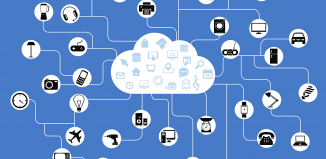A Revolution In IoT Security?
This post is also available in:  עברית (Hebrew)
עברית (Hebrew)
The Internet of Things, a vast network of sensor nodes and devices, is promising to revolutionise our lives. In many ways, it’s already here, with millions upon millions of devices already collecting useful data and working out in the real world. The number of these devices is expected to grow, with nearly 6.5 billion devices connecting until end of 2016 and tens of billions by 2020. The problem is how to prevent malicious misuse of these devices, how to avert data leakage, how save the lives and rights of billions of humans. In short, IoT security is on everyone’s minds, and for good reason.
Filament is one startup that thinks it has found the solution to the quandary. With absolutely mind boggling number of devices that will be connected one to another in the next few years, “it will be important to decentralized the core digital identity of these devices,” Filament co-founder and CEO Eric Jennings told the Chain of Things in a recent interview.
Having one central control and information point for millions and billions of devices creates a single point of failure. No matter how strong the defences around the centre are, it will pose too much of an attractive target for malicious attackers. Decentralising device identity and control immediately lower the risk factor significantly.
Jennings went on to explain that blockchains “give a device an immutable, globally-verifiable digital identity, which is step 0 of deploying secure systems at scale. If you can’t guarantee identity, cryptographically-speaking, then all other requirements (discovery, communication, etc) are vulnerable.”
But blockchains would also help with distributed data storage on the devices themselves, eliminating the need for central servers and allowing to create an effective and efficient storage and backup systems in which devices use redundant storage and processing capacity to supplement each other’s needs.
Additionally, the blockchain should also make it possible “to generate new, recurring sources of revenue by selling access to your devices or data,” according to Filament. But security is the topmost priority for the company. “It is, bar-none, the most important issue for IoT,” Jennings said.






























